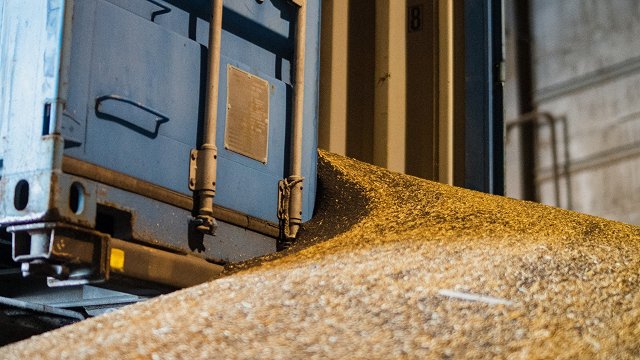Cooperation with Russia during the war in Ukraine is widely condemned in society, but still exists – and not just in the private sector. Russian grain imports are on the rise, and the fully Ministry of Transport-controlled “LDz cargo” is the largest Latvian grain carrier from Russia.
The company's profits have shrunk since the war began, yet it remains relatively high. It is grain and grain processing products that account for the highest proportion of cargoes carried, with more than half of all cargoes carried coming from Russia and Belarus in 2022, according to the latest publicly available annual report. Similar figures are also for export transit.
Although data for last year are not yet publicly available, LDz cargo management acknowledges that the company continues cooperation with Russia and Belarus as it has done so far.
“Grain is not sanctioned right now, and those grain groups that are not sanctioned, “LDz cargo” continues to carry. This year's shares are the same,” said Mārtiņš Pevko, Board Member of LDz cargo.
When transporting Russian grain, the company does not violate the EU sanctions. It's a matter of ethics and working with the aggressor. Several politicians have said trade with aggressor countries is not to be supported, and the Transport Minister, who is in the command of LDz cargo, has said he supports banning “imports of bloody grains.”
“I did not receive any input from previous ministers when I got to the post of Minister. I must, in fact, ask the Ministry to carry out an impact assessment from scratch of the ban on the transit of Russian and Belarusian cargo in LDz cargo,” Brisken said.
He also started talks with his Estonian and Lithuanian counterparts: “I believe that the Baltic States should also have a coordinated position.”
LDz cargo board says that Europe should be united on the matter.
On ethical grounds, Estonia abandoned Russian freight transport more than a year ago. It made such a decision for its own public company, without expecting Europe to make it.
Coincidence or not – when the Estonian state-owned company abandoned the Russian and Belarusian cargoes, the Latvian-owned “LDz cargo” took over its activities and cooperation with Russia. The company's board member said that Estonians are now suffering severe consequences.
“I can tell from the example of Estonia that Estonia's national carrier is currently experiencing major difficulties. Lay off employees, sell out their locomotives, scrap them,“ Pevko stated.
The minister promises that with data estimating losses by banning the transport of these grains, he will first go to the government and also try to convince European Union partners that such transit and imports should be included in the sanctions list and banned. Likely, these decisions will not be quick.
Initially, Russian grain imports into the European Union were called for by Agriculture Minister Armands Krauze (Union of Greens and Farmers) to be banned. The initial offer was to ban only imports while keeping those products in transit so as not to hurt poor countries outside the European Union that lack food.
Latvia has also held discussions about whether the transit of Russian grain cargoes to third countries should also be prohibited, so that Latvia is not part of this chain in any way, because there is a risk that some of the grain may also be so-called bloody grains stolen from Ukraine. However, it is not certain that the European Union would also be prepared for a transit ban.































